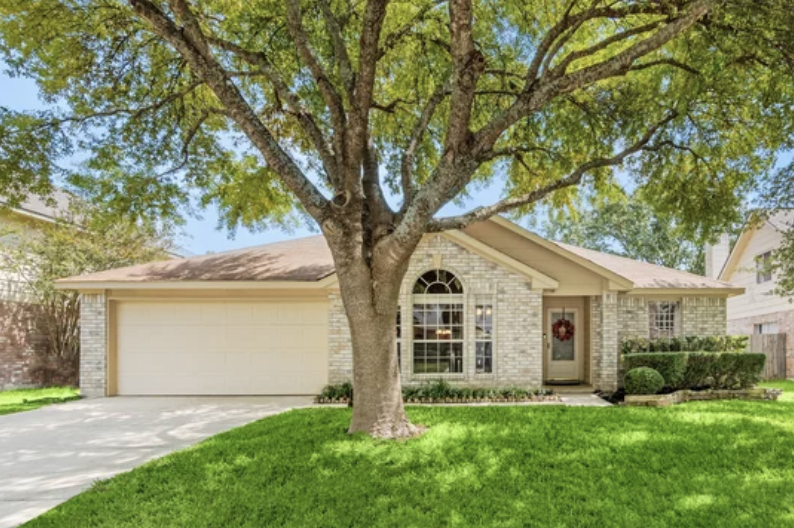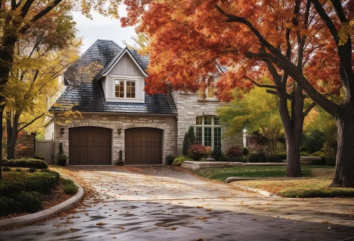So, you're in the market for new windows. The question is, do you go with a single-pane or double-pane window? Well, let's break it down. A single-pane window comprises one layer of glass, while a double-pane window consists of two layers of glass with an air or gas-filled space in between. Double-pane windows offer greater insulation and energy efficiency, which means lower energy bills. However, they can come with a higher price tag. On the other hand, single-pane windows are cheaper upfront but can lead to greater energy costs down the line. At Wallaby Windows of North Texas, we recommend assessing your budget, climate, and long-term goals to determine which option is best for you.
Consider double-pane windows
Energy efficiency: Double-pane windows provide better insulation compared to single-pane windows. The two layers of glass with an insulating air or gas-filled space in between help to reduce heat transfer and minimize drafts. This improved insulation can result in energy savings by reducing the need for heating or cooling systems to compensate for heat loss or gain through the window.
Noise reduction: The additional layer of glass in double-pane windows helps dampen outside noise, making them more effective at sound insulation than single-pane windows. This can be beneficial if you live in a noisy area or near busy roads.
Condensation reduction: Double-pane windows are less prone to condensation compared to single-pane windows. The inner glass layer of a double-pane window remains closer to room temperature, reducing the likelihood of moisture condensing on the window surface.
UV protection: Double pane windows often come with coatings or films that can help block a significant portion of the sun's ultraviolet (UV) rays. UV rays can cause fading and damage to furniture, flooring, and other items exposed to sunlight. The extra layer of glass and coatings in double-pane windows can help protect your belongings from UV damage.
Enhanced security: The additional layer of glass in a double-pane window provides an extra barrier against potential break-ins. It can be more difficult for intruders to shatter both layers of glass, providing improved security compared to a single-pane window.
While double-pane windows offer these benefits, it's important to note that their performance can vary depending on factors such as the quality of the windows, the type of glass used, the gas fill (if any), and the window frame material. It's advisable to consider these factors and consult with a professional when selecting windows for your specific needs.
Double-pane windows are filled with argon gas.
Argon is a colorless, odorless, and non-toxic gas that is denser than air. It is commonly used as a filler gas between the two glass panes in double-glazed or insulated glass units (IGUs).
There are several reasons why argon gas is used in double-pane windows:
Thermal insulation: Argon gas is a poor conductor of heat. By filling the space between the glass panes with argon, the window's thermal insulation performance is improved. It reduces heat transfer through the window, helping to keep the interior of the building cooler in hot weather and warmer in cold weather. This improves energy efficiency and reduces heating and cooling costs.
Sound insulation: Argon gas can also help to reduce sound transmission through the windows. The denser argon gas dampens sound vibrations better than air, making the windows more effective at blocking external noise.
Condensation prevention: Argon gas is a dry and inert gas. By filling the space between the glass panes with argon, it helps to prevent condensation from forming on the interior surface of the window. This is because the gas acts as a barrier, reducing the transfer of moisture between the interior and exterior of the window.
It's important to note that while argon gas provides additional insulation benefits compared to air-filled windows, its effect is relatively small. Other factors such as the quality of the window frame and the type of glass used also contribute to the overall energy efficiency of the window.
Considering window glass options for your Dallas Home
When considering window glass options for your Dallas home, there are a few factors to keep in mind. The choice of window glass depends on your specific needs and priorities, such as energy efficiency, noise reduction, and security. Here are some commonly used types of window glass that are suitable for Dallas homes:
Low-E (Low-Emissivity) Glass: Low-E glass has a special coating that helps to reflect heat and ultraviolet (UV) rays while allowing visible light to pass through. It improves energy efficiency by reducing heat transfer, keeping your home cooler in the hot Dallas summers and reducing the workload on your air conditioning system. Low-E glass also helps protect your furniture and belongings from fading due to UV radiation.
Insulated Glass Units (IGUs): IGUs consist of two or more glass panes with a sealed airspace in between. The space can be filled with air or an insulating gas like argon or krypton. IGUs enhance energy efficiency by reducing heat transfer and improving insulation. They also provide better soundproofing compared to single-pane windows.
Impact-Resistant Glass: Impact-resistant glass is a wise choice if you live in an area prone to severe weather conditions, such as hailstorms or hurricanes. It is designed to withstand strong impacts and minimize the risk of breakage. Impact-resistant glass typically consists of multiple layers of glass with a durable interlayer, providing increased safety and security for your home.
Noise-Reducing Glass: Consider laminated or acoustic glass if you are concerned about outside noise. Laminated glass is constructed with a layer of vinyl between two glass panes, which helps to dampen sound vibrations and reduce noise transmission. Acoustic glass incorporates a specialized interlayer that further enhances sound insulation, making it an excellent choice for homes located near busy streets or airports.
Tinted Glass: Tinted glass can help reduce glare and minimize the heat entering your home. It comes in various shades and can provide additional privacy during the daytime. Tinted glass is particularly beneficial if your windows face direct sunlight for extended periods.
Ultimately, the best choice of window glass for your Dallas home depends on your specific requirements, budget, and local climate. Consulting with Wallaby Windows can provide personalized recommendations based on your needs and help you make an informed decision.
Looking for the perfect windows and doors to brighten up your home? Look no further than Wallaby Windows of North Texas. We pride ourselves on delivering impressive quality, proven performance, and unmatched comfort and control in every product we offer. Our award-winning designs are not only beautiful but functional, ensuring that your home will look and feel great for years to come. With our commitment to customer satisfaction and a passion for excellence, you can trust Wallaby Windows of North Texas to provide you with the best experience possible.



